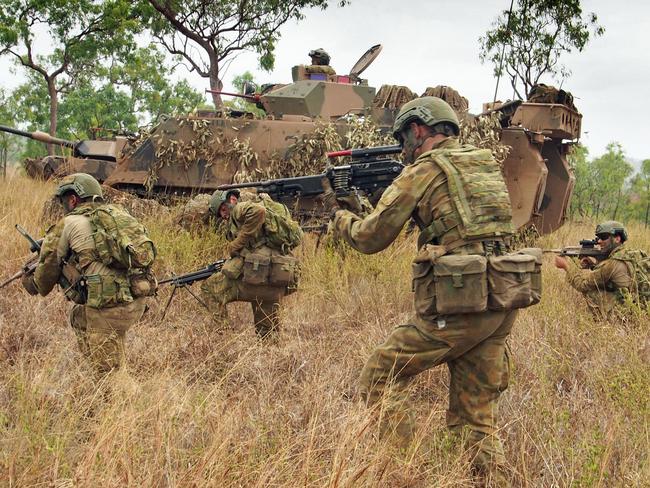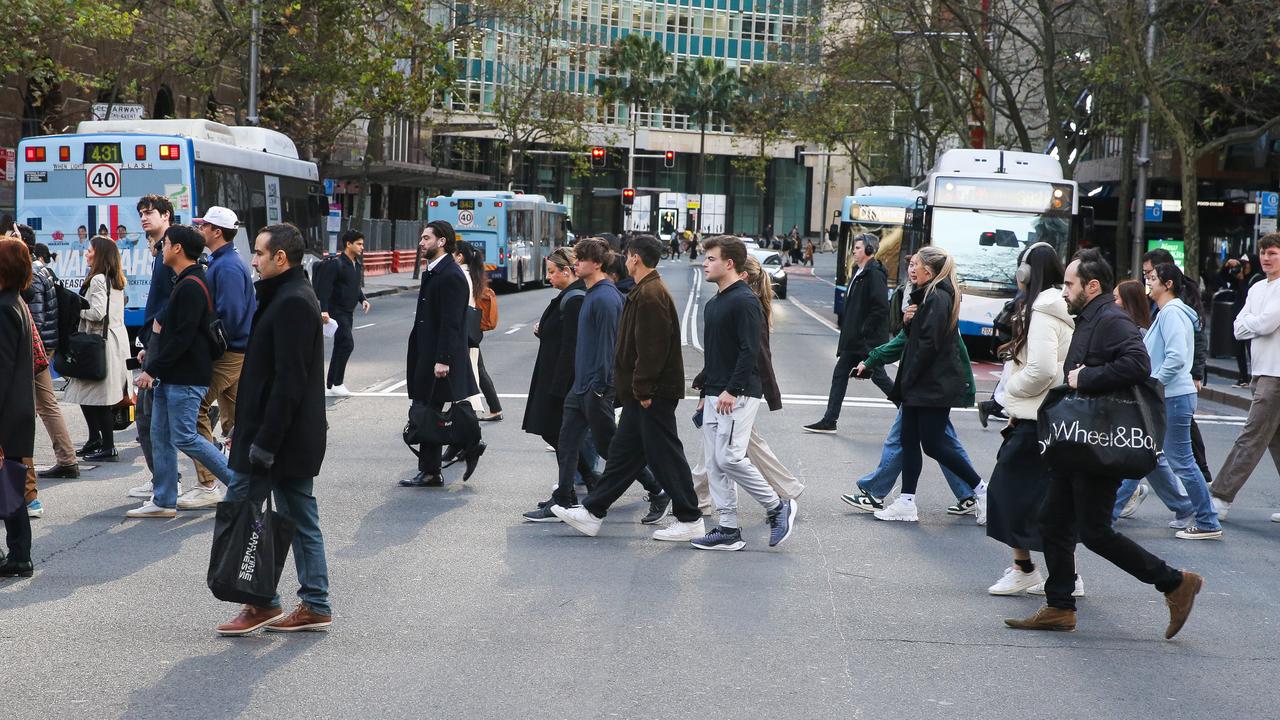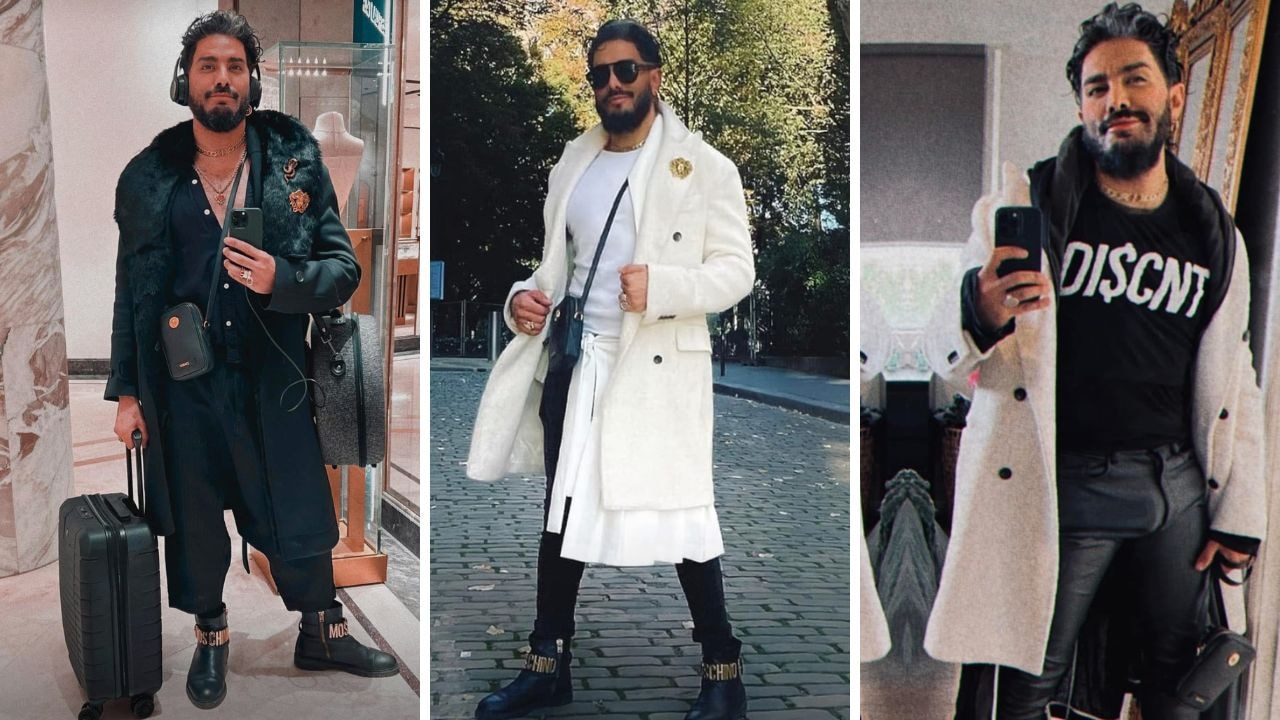‘Self-aware’ Army officers to get coached in ‘cross-cultural competence’
WELCOME to the new Australian Army, one where buzzwords like “emotional intelligence” and “interpersonal maturity” are being pushed hard.
THE Australian Army is hiring private “executive coaches” to teach its senior officers “self-awareness”, “emotional intelligence”, “cross-cultural competence” and “interpersonal maturity” in an effort to combat perceptions that they are too “authoritarian, assertive and angry”.
It has also commissioned “psychometric and psychological testing” as part of the Australian Defence Force’s push to transform its culture to fit with modern standards.
The Department of Defence has tendered for “executive coaching services” for private and group sessions with its top brass that would not be out of place on the bureaucratic satire Utopia.
The top priority referred to in the tender documents is “Self Awareness of Strategic Leadership Style”.
Defence describes this as: “Exploration of personal values, beliefs, attitudes and associations and their impact on personal leadership behaviour.”
The 12-month contract — which can be extended for further years — is for a program of up to six sessions for 24 officers, with individual coaching for Brigadiers and Major-Generals and group coaching for Lieutenant Colonels and Colonels.
In an accompanying document entitled “Why the Australian Army needs a co-ordinated Executive Coaching Program”, the tender refers to an open letter by Chief of Army Lieutenant General Angus Campbell to his senior leadership group.
“General Campbell reflects that perceptions of Army officers as bureaucratically authoritarian, assertive and angry do not fit with the evolving cultural requirements of Army and are not helpful in a joint strategic environment,” the document states.
“General Campbell suggests that what is helpful is ethically informed, values based leadership that inspires, resources and enables subordinates to achieve their best work.”
One characteristic the Army is seeking to instil in its officers is described as “cross-cultural competence”, which it defines as “understand(ing) cultures beyond one’s professional and national boundaries”.
Officers will be expected to “work effectively with those from other cultures, generations, departments and gender”.

Another is called “interpersonal maturity”, which is described as “the ongoing development of self-awareness and emotional intelligence”.
It also seeks to develop “‘small p’ political sense”, which is “exerting influence across organisations and teams” and communications skills to “succinctly help others to understand complicated issues” and exert “interpersonal influence”.
The document also expects officers to know their “identity” which is “understanding of one’s own values and how they shape leadership style”.
Australian Defence Association executive director Neil James said it was a mistake to think the Army needed to change its leadership style.
“You don’t want your army to change too much,” he said. “You want your army to win wars.”
Mr James, who served in the army for 31 years, also said it was a popular misconception that the Army was full of officers who were too aggressive.
“Armies don’t work because people yell at people,” he said. “It’s teamwork that drives the army, not shouting.”
He said leadership skills were already taught extensively within the Army and this program seemed to be more directed at officers dispelling that misconception when dealing with other people and organisations, rather than actually changing themselves.
“It doesn’t matter what coaching you give, there’ll be people out there in society who think that. But that’s society’s problem, not the army’s.”
The individual coaching would apply to 10 Brigadiers and/or Major Generals for six two to three hour sessions each in one year. The group coaching would involve six four hour sessions for 14 lieutenant colonels and/or colonels.
The tender also asks for providers to have expertise in applying psychometric testing during the coaching sessions.
“It is preferred that the supplier is also able to demonstrate suitable qualifications and expertise in the use of a range of psychometric and psychological testing and assessment tools for use within coaching, as determined by the Australian Health Practitioner Regulation Agency or similar body,” it states.
It also raises the question of officers being psychologically re-evaluated over their careers and whether this should be included in the course, stating: “Defence does not have a standardised program that assesses personality styles or psychological types throughout officers’ careers.”
The Department of Defence has been contacted for comment.




